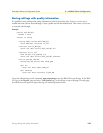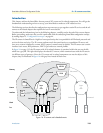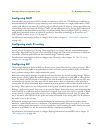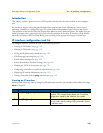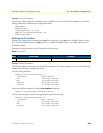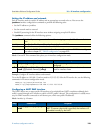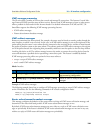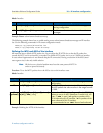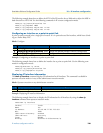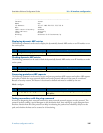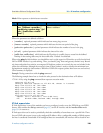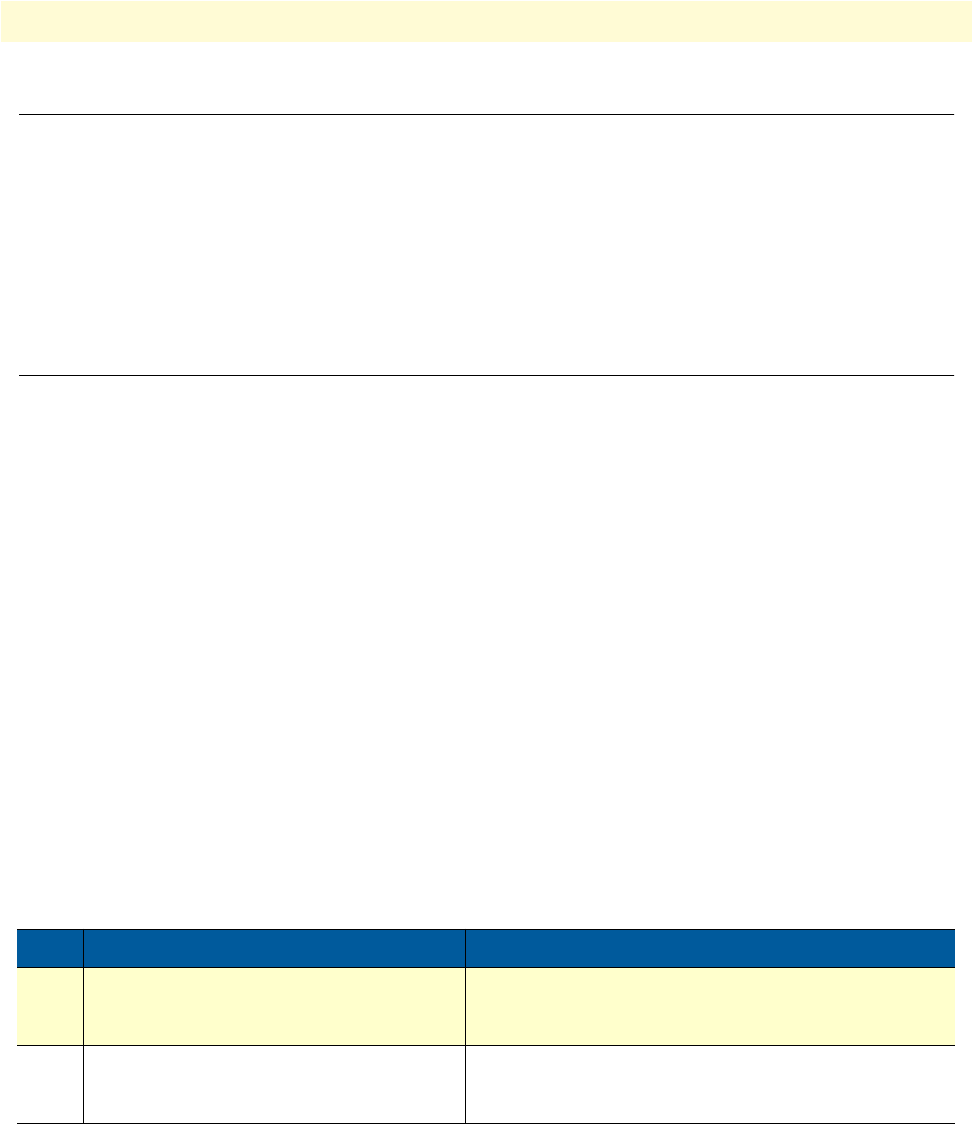
Introduction 121
SmartWare Software Configuration Guide 10 • IP interface configuration
Introduction
This chapter provides a general overview of IP interfaces and describes the tasks involved in their configura-
tion.
An interface is a logical entity that provides higher-layer protocol and service information, such as Layer 3
addressing. Interfaces are configured as part of a context and are independent of physical ports and circuits.
The separation of the interface from the physical layer allows for many advanced features. For higher layer pro-
tocols to become active, a physical port or circuit must be bound to an interface. IP interfaces can be bound
physically to Ethernet, SDSL or Frame Relay ports according to the appropriate transport network layer.
IP interface configuration task list
To configure interfaces, perform the tasks in the following sections:
• Creating an IP interface (see page 121)
• Deleting an IP interface (see page 122)
• Setting the IP address and netmask (see page 123)
• ICMP message processing (see page 124)
• ICMP redirect messages (see page 124)
• Router advertisement broadcast message (see page 124)
• Defining the MTU of the interface (see page 125)
• Configuring an interface as a point-to-point link (see page 126)
• Displaying IP interface information (see page 126)
• Testing connections with the
ping command (see page 127)
Creating an IP interface
Interface names can be any arbitrary string. Use self-explanatory names for your interfaces, which reflect their usage.
Mode: Context IP
Step Command Purpose
1 node(ctx-ip)[router]#interface name Creates the new interface name, which represents an IP
interface. This command also places you in interface
configuration mode for the interface just created.
2 node(if-ip)[name]# You are now in the interface configuration mode, where
you can enter specific configuration parameters for the
IP interface name.



